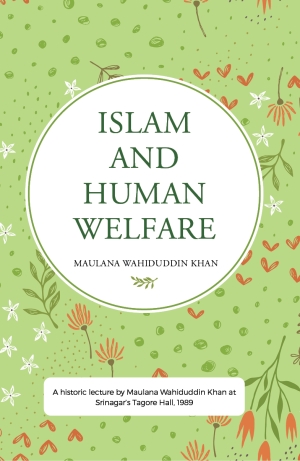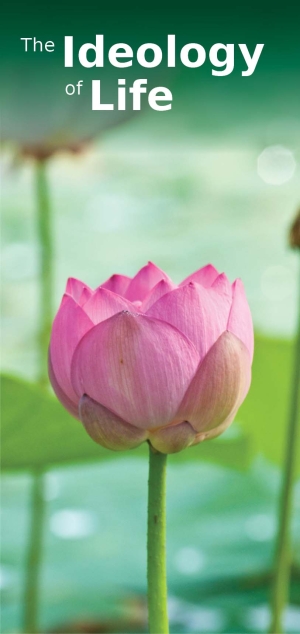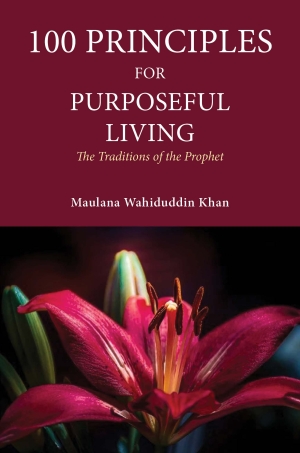According to the Quran, God created Adam and his wife, Eve, and settled the pair in Paradise. After that, God gave them freedom, but their freedom was restricted. They were to refrain from all activities against their fellow men. In other words, they were forbidden to indulge in any social wrongdoing. Otherwise, they would fail to fulfil the divine plan, as given in the following verse of the Quran:
God said, ‘O Adam! Settle, you and your wife, in Paradise and eat freely from it anywhere you may wish. However, do not approach this tree lest you become wrongdoers.’ (2:35)
The ‘forbidden tree’ in the above verse, in one sense, was a symbol of social taboos. Breaking these taboos means involving oneself in social wrongdoing, as mentioned in the above Quranic verse. What is ‘wrongdoing’? Anything that proves to be harmful to one’s fellow men is wrongdoing. In other words, Adam and Eve had to follow the well-known formula: You are free, but your freedom ends where another’s nose begins.
This was the first social lesson given to the first man. However, it was a lesson for entire human history: while having freedom bestowed upon him, the man was created with great qualities and infrastructure to allow him to use his talents. Thus, man potentially was the master of his environment. He was able to create a world of his own, with the sole condition that he should not misuse his freedom but use it properly. If a man proves to God Almighty that he has refrained from approaching the ‘forbidden tree’ in this world, he will develop intellectually and be held deserving of inhabiting Paradise in the Hereafter.
Featured Articles
Featured Videos
FAQs
From the Quran, we understand that Adam and his spouse were expelled from Paradise and made to settle on earth. During the early part of their life on earth, there was a serious conflict between their two sons Qabil and Habil which led to the killing of Habil by Qabil. The Quran says that after this incident, God decreed that:
Whoever killed a human being except as a punishment for murder or for spreading corruption in the land shall be regarded as having killed all mankind, and that whoever saved a human life shall be regarded as having saved all mankind. (The Quran, 5: 32)
Such severe words have not appeared in the Quran for any other crime. From this we can understand that in the eyes of God, the most heinous of crimes is to commit a violent act against another human being. In this matter if there is any exception it is only for an established government after a judicial process. For common man, there is no exception in this matter.
This strict forbidding of violence is because violence is against the system of nature. The order of nature established by the Creator gives full freedom and opportunity to every man and woman to do as they please. But violence and conflict destroys this very fabric of nature. Violence is an interference in the order of nature established by the Creator and such interference is without doubt the most serious of crimes.
Source: Spirit of Islam May 2014
God created the first man, Adam, and initially inhabited him in the garden of Paradise. He was told that he could live in Paradise with full freedom but with only one condition. In Paradise he was forbidden from approaching a particular tree or eating of its fruit. (The Quran, 2: 35)
This was the original forbidden tree of Adam's motherland. However, according to the Quran, Adam was unable to remain patient, and he ate from the fruit of the forbidden tree (The Quran 20: 121). He failed the ‘test’ that God had given him in Paradise. As a result of this action, he was banished from the garden of Paradise and sent to live on earth.
Nevertheless, as far as the test for man is concerned, it remains the same here on earth also. The difference between the two is that in Paradise there was only one forbidden tree, and in this world, there is a jungle of ‘forbidden trees’. The return to Paradise for man will only be on the condition that he does not partake of the fruit of the forbidden trees. Now, for man to fulfill this condition, he has to be extremely cautious, because while originally, he had to avoid only one tree, here it is necessary for him to refrain from a jungle of forbidden trees.
An account of things that are forbidden can be found in the Quran and Hadith. In the present age, the list of such things which lead man astray from the straight path has become very extensive. Such a comprehensive list of forbidden things cannot be compiled. Man has to now live very cautiously in this world. Whenever he comes across something that is a distraction from the straight path, he should immediately recognize it and shun it completely.
In this world, all such things take the place of a ‘forbidden tree’ that make man forget God and neglect the accountability of the Hereafter. Only the one who examines his life and continuously introspects will be able to save himself from these ‘forbidden trees’.
Source: Spirit of Islam April 2014
There is only one answer to this. Those who fear God should take upon themselves the responsibility of unilaterally showing patience. In spite of experiencing violence they themselves will be free of it. This is the only way a society devoid of violence can be established. According to the Quran, when Qabil wanted to kill Habil, Habil said:
“Even if you raise your hand to kill me, I will not raise my hand to kill you. I fear God the Lord of the Universe.” (The Quran, 5: 28)
This is the ultimate example of unilateral patience in the face of violence, as established by Habil, the son of Adam. According to the Hadith, the Prophet of Islam said: 'In later times there will be political degeneration but you should never confront your rulers'. One of the companions asked, 'If they should come into our homes to kill us, then what should we do?' The Prophet replied, 'You become the better of the two sons of Adam'. That is, even though you face death at the hands of others, you should not attempt to kill them.
The only way to form a peaceful society is that individuals unilaterally refrain from using violence.
This is a negative approach to the subject. In reality, Satan is a source of struggle for human beings. If there were no struggle, there would be no development at all. The development of a person’s mind is a result of his response to challenging situations. If there were no Satan, there would be no field of struggle left for an individual, his mind would not unfold and he would not be able to tap into his potential.
Satanic temptations give a person the opportunity to develop resilience and patience by not succumbing to them. According to a verse of the Quran, man is asked to seek refuge from the temptation caused by both Satan and man’s own soul. The verse is as follows:
Say, ‘I seek refuge in the Lord of people, the King of people, the God of people, from the mischief of every sneaking whisperer, who whispers into the hearts of people, from jinn and men.’ (The Quran 114: 1-6)
Source: The Seeker’s Guide









